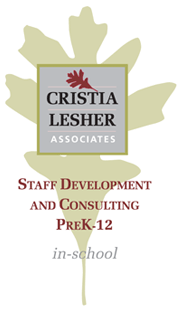Behavior: unconditional attention
Date: September 8th, 2016
By: Polly Bath
Polly Bath: You get a lot of bang for your buck if you give what’s called unconditional attention. I don’t say to the kids, “Listen, if you get all of your work done, at the end of the day, we’re going to get an extra recess for whatever.”
I’ll say to them, “Hey guys, you got your work done today. Drop everything. Let’s sit down, let’s talk a little bit, and then let’s go out to recess together.” They don’t see it coming. It’s unconditional.
Whenever I can provide unconditional attention, I can teach kids that you don’t have to create a problem to get attention. That’s my biggest concern.
If I have a child who is at a Tier 2 or maybe even a Tier 3, really, really difficult, and they love to shoot hoops, and I find out that I have somebody in the building that’s willing to go shoot hoops with them for three or four times a day, and they don’t have to earn it, guess what? I put that into their schedule.
After lunch, the rest of the class gets in the line that’s coming in and this kid goes and shoots hoops with some other teacher for five minutes during the day. They didn’t have to earn it. We don’t take it away from them either. It’s just there.
Then they start to think, their brain starts to say, whoa, this person shoots hoops with me four times a day, or maybe it’s just once a day, maybe it’s twice a week, whatever the needs are, and I didn’t have to do anything to get it. All of sudden, their behavior starts to change because they start to learn that I don’t have to misbehave to get it.
The problem with that is we don’t see it that way. We see it as that kid misbehaves and now he gets to go and play basketball with someone! Why would he be rewarded for bad behavior? That’s it! I’m done!
We don’t see it that way, but you see it’s not different than the kid who can’t read and they go and get a special reading instruction. Now they come in the classroom and they misbehave. We never say to that kid, “That’s it! No reading for you! You’re done! No reading group!” We never do that.
We might take away the unconditional attention. But if that’s really a legitimate intervention for that child, it’s just like taking away their reading, because that’s what they need. We’ve got to start to think about social/emotional interventions the same way we do reading, writing, and all the academic stuff.
If we do that, those kids are going to be more available for the academic stuff. That’s what I want. I want availability because you’re right, so many of our kids come in the building every day and they’re just not available for this stuff. How do we embed that into our day?

